
Georgian Faculty Competency Framework
The Innovative Georgian College Faculty Competency Framework is a system meant to help educators consider and engage in conversation about the many roles we assume and hats we wear in our day-to-day professional lives.
We are designers, researchers, inclusive practitioners, changemakers, digital navigators, collaborators, reflectors and mentors. We weave associated competencies into our daily practices, and we grow from emerging, to performing to transforming overtime.
Goals of the Innovative GC Faculty Competency Framework
Included as a strategic priority in Georgian College’s Academic Plan (see page 15), the Competency Framework has been created by faculty for faculty with the following amazing goals:
- Offer all Georgian Faculty access to competency-based micro-credentials and professional learning opportunities that align with key Georgian priorities and excellent teaching and learning practice.
- Activate a model that celebrates faculty as they move from emerging skills to transformative teaching.
- Promote continual engagement with clearly mapped, scaffolded, professional development pathways and journey markers where faculty can easily make professional learning decisions.
- Clearly share with the college community what the role of faculty entails when teaching at Georgian.
We know that we develop competence along a continuum and each of us will move along that continuum at a unique pace. Our growth never stops as teaching and learning contexts continue to change. This makes education one of the most exciting and challenging fields.
Faculty competencies and roles
Georgian faculty and peers have identified the following faculty roles:


Stages of growth in competence
In our Faculty Competency Framework, we have identified three stages of growth in competence:
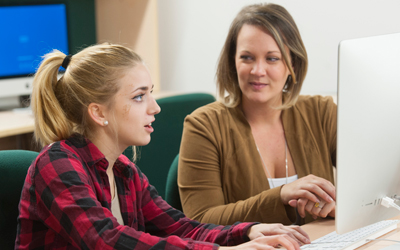
Emerging
faculty at the emerging stage
are recognizing the importance
of this competency for teaching
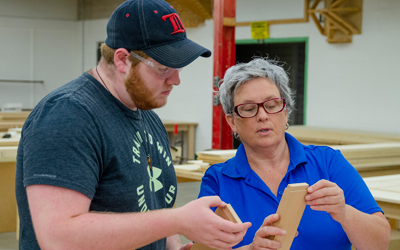
Performing
faculty at the performing stage
are actively doing this
competency as they teach
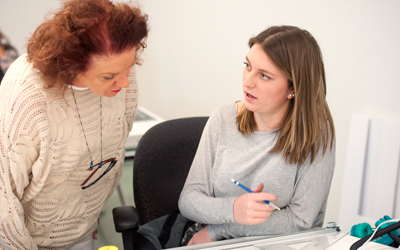
Transforming
faculty at the transforming stage
are impacting the teaching
and learning ecosystem
We are working to tag our professional learning opportunities in order to help you make decisions related to your professional growth.
| COMPETENCY | Emerging (E) *recognizing the importance | Performing (P) *doing it | Transforming (T) *impacting the ecosystem |
|---|---|---|---|
| Designer (DE) | Designer – Emerging DE-E 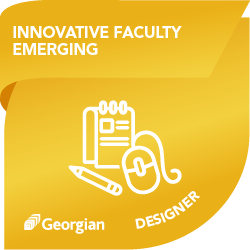 | Designer – Performing DE-P 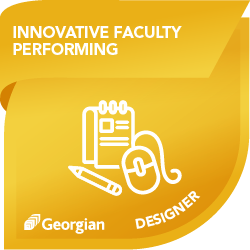 | Designer – Transforming DE-T 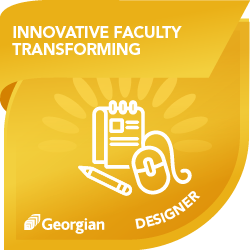 |
| Researcher (RE) | Researcher – Emerging RE-E 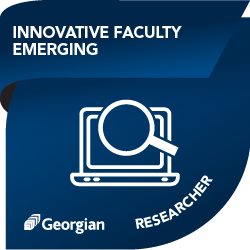 | Researcher – Performing RE-P 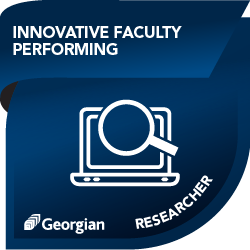 | Researcher – Transforming RE-T 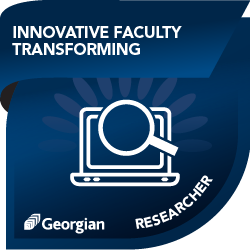 |
| Inclusive Practitioner (IP) | Inclusive Practitioner – Emerging IP-E 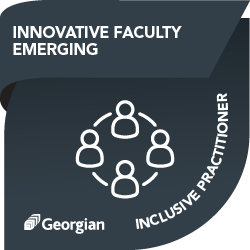 | Inclusive Practitioner – Performing IP-P 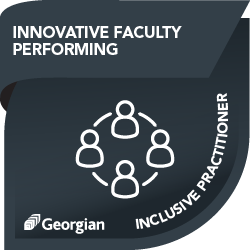 | Inclusive Practitioner – Transforming IP-T 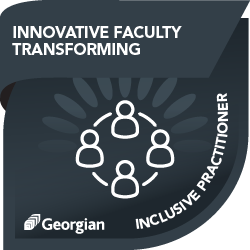 |
| Changemaker (CH) | Changemaker – Emerging CH-E 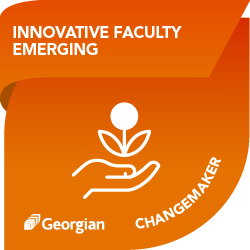 | Changemaker – Performing CH-P 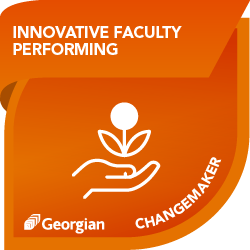 | Changemaker – Transforming CH-T 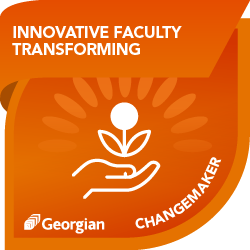 |
| Digital Navigator (DN) | Digital Navigator – Emerging DN-E 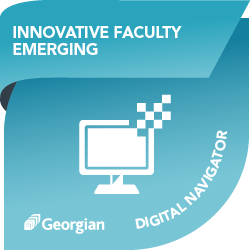 | Digital Navigator – Performing DN-P 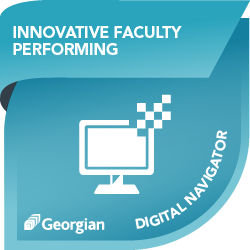 | Digital Navigator – Transforming DN-T 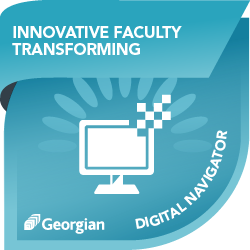 |
| Collaborator (CO) | Collaborator – Emerging CO-E 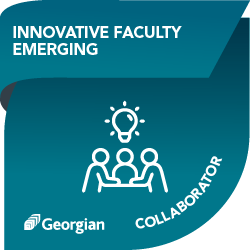 | Collaborator – Performing CO-P 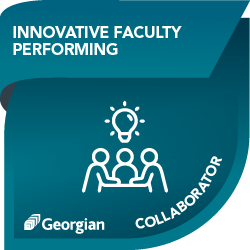 | Collaborator – Transforming CO-T 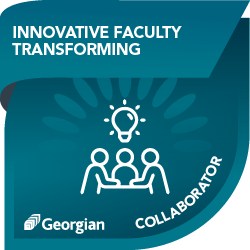 |
| Reflector (RF) | Reflector – Emerging RF-E 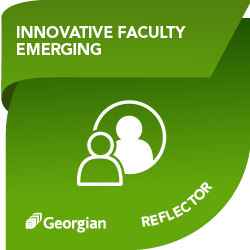 | Reflector – Performing RF-P 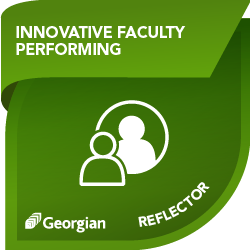 | Reflector – Transforming RF-T 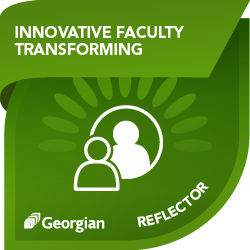 |
| Mentor (ME) | Mentor – Emerging ME-E 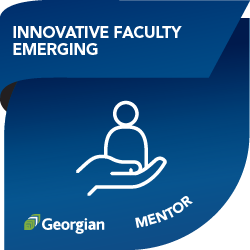 | Mentor – Performing ME-P 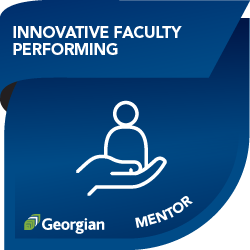 | Mentor – Transforming ME-T 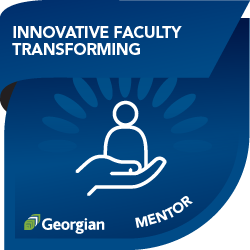 |
Earning badges while you grow your teaching practice
We hope to help you and those impacted by your work recognize your contributions to the teaching and learning ecosystem at Georgian (and other places).
Our badging system honours growth in skills and competence rather than tracking set hours or workshops. In other words, this system is meant to recognize your professional learning on an individual path at your own pace. We are all on our own teaching journey.
We are working to tag our professional learning opportunities in order to help you make decisions related to your educator growth.
We will also honour the amazing competency work you have done outside of Georgian. For example, if you have taken the eCampus Ontario Empowered Educator modules, you are clearly working towards your Performing badges in many of our competencies. We hope to curate with you the kinds of amazing professional learning opportunities for educators available outside of Georgian.
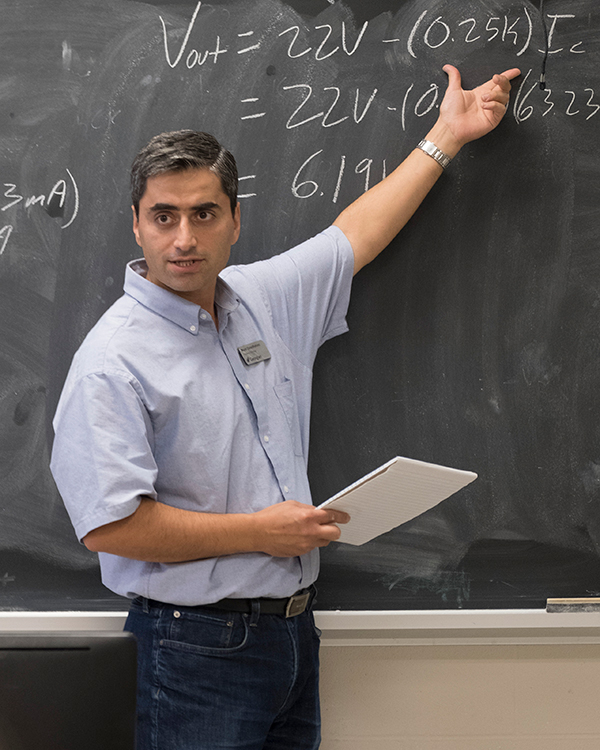
Competencies and badges
DESIGNER (DE) competency
Innovative faculty are DESIGNERS. They design courses, classes, teaching and learning activities, and assessments to facilitate student learning.
They recognize the importance of mapping courses for students and use evidence informed pedagogy / andragogy to inform their practice. They recognize the importance of universal design, creating spaces of belonging, and sharing with peers to positively impact the teaching ecosystem.
Design work is essential work in contemporary teaching and learning. Georgian peers helped identify the key criteria associated with the DESIGNER role and work of faculty.
Key criteria: | intentional | innovative | guide / way finder | cultivator |
Innovative Georgian College faculty are intentional in their design of teaching and learning opportunities. They innovate by maintaining currency in both their field and their teaching practice to best position their students.
They actively guide their students and help them find their way in each course and in the Georgian teaching and learning ecosystem through connections to student success services and opportunities like the library, Indigenous Centre, EDIB resources, Mental Health and Well-being MHWB) team, etc.
Exemplar performance descriptors
Emerging Designer

Faculty who are DESIGNING at an EMERGING level (DE-E) might demonstrate the following:
- Identify characteristics of students that may impact their learning.
- Define what innovative teaching practice looks like, feels like, sounds like.
- Recognize the importance of mapping a course to support student learning.
- Identify components of integrated course design.
Performing Designer

Faculty who are DESIGNING at a PERFORMING level (DE-P) may do the following:
- Intentionally create universally designed teaching and learning activities.
- Integrate innovative teaching practices into the learning environment.
- Facilitate student learning with scaffolded, mapped and woven experiences.
- Cultivate student learning by using evidence-informed, authentic opportunities for practice.
Transforming Designer

Faculty who are DESIGNING at a TRANSFORMING level (DE-T) may do the following:
- Participate openly in dialogue with peers about inclusive course design.
- Demonstrate commitment to improving practice through risk taking in course design
- Mentor others in transformative course design.
- Curate and share high impact practices to engage students.
Please note that these descriptors are not exhaustive. Faculty demonstrate this competency in numerous ways, all of which are key to innovative teaching. Please share your exemplars as you describe how you are emerging, performing, or transforming the teaching and learning ecosystem.
RESEARCHER (RE) competency
Innovative faculty are RESEARCHERS. They inspire curiosity and motivate students to ask questions. They offer opportunities to practice critical analysis and problem solving.
They explore evidence and best practices in their disciplines and in the profession of teaching. Faculty use research to stay connected and to keep current and transform the experiences of students and peers by sharing their experiences. Faculty who are developing competence in their role as researchers may do the following kinds of things.
Doing research is essential work in contemporary teaching and learning.
Georgian peers helped identify the key criteria associated with the RESEARCHER role and work of faculty.
Key criteria: | questioner | knowledge seeker| appraiser | action taker |
Innovative Georgian College faculty are question-askers. They innovate by maintaining currency in both their field and their teaching practice to best position their students. They think critically about their profession and their teaching and approach research with a critical lens that they bring to their classroom and students. These faculty take action on the research they find in order to offer the best learning opportunities to students.
Exemplar performance descriptors
Emerging Researcher

Faculty who are RESEARCHING at an EMERGING level (RE-E) might demonstrate the following:
- Recognize the importance of curiosity for learning.
- Note the importance of connecting current research to practice.
- Identify ways to critique information.
- Identify approaches for incorporating new information and practices.
Performing Researcher

Faculty who are RESEARCHING at a PERFORMING level (RE-P) may do the following:
- Integrate opportunities for students to engage in critical inquiry and problem solving.
- Seek credible, relevant information to authentically appeal to students.
- Guide students in critical appraisal.
- Embed new learning into existing teaching practice.
Transforming Researcher

Faculty who are RESEARCHING at a TRANSFORMING level (RE-T) may do the following:
- Share innovative solutions for integrating research in teaching practice.
- Share the impact of knowledge seeking and research on the faculty role.
- Contribute to a culture of critical curiosity to grow research practices.
- Share specific research-related stories with relevant communities.
Please note that these descriptors are not exhaustive. Faculty demonstrate this competency in numerous ways, all of which are key to innovative teaching. Please share your exemplars as you describe how you are emerging, performing, or transforming the teaching and learning ecosystem.
INCLUSIVE PRACTITIONER (IP) competency
Innovative faculty are INCLUSIVE PRACTITIONERS. They are emotionally attuned to the needs of learners and use empathy as a lens for their practice. They plan teaching and learning experiences with integrity and work to identify and reduce inequities and injustices that may impact student success. They inhabit a space of growth mindset and are open to knowledge outside of their disciplines to empower students. They understand the importance of equity, diversity, inclusion and belonging work and see indigenization as a key priority to transform post-secondary education. Faculty developing competence in their role as inclusive practitioners may do the following things.
Being inclusive is essential work in contemporary teaching and learning. Georgian peers helped identify the key criteria associated with the INCLUSIVE PRACTITIONER role and work of faculty.
Key criteria: | emotionally attuned | just | courageous | empowering | questioner | knowledge seeker | appraiser | action taker |
Innovative Georgian College faculty include all learners in their learning spaces by creating a culture of belonging. They are just and courageous and will take a stand to support others. They are intentional in empowering students to contribute to student success.
Exemplar performance descriptors
Emerging Inclusive Practitioner

Faculty who are PRACTISING INCLUSION at an EMERGING level (IP-E) might demonstrate the following:
- Recognize the diversity of learners when developing effective learning environments.
- Respect all learners.
- Recognize the importance of vulnerability and uncertainty in the faculty role.
- Recognize the power and possibility they hold.
Performing Inclusive Practitioner

Faculty who are PRACTISING INCLUSION at a PERFORMING level (IP-P) might do the following:
- Use a growing array of skills to respond to a multi-faceted learning environment that ensures space for safety, challenge and growth.
- Foster a commitment to community standards and values while maintaining empathy and fairness.
- Cultivate opportunities and model risk taking in their teaching practice.
- Foster a learning environment where all are empowered to have their own agency and voice.
Transforming Inclusive Practitioner

Faculty who are PRACTISING INCLUSION at a TRANSFORMING level (IP-T) might do the following:
- Inspire and mentor others to invest in their own inclusive practice and commitment towards change.
- Seize opportunities to model values in decision making in their work.
- Be transparent and humble in reflecting the uncertainties and course corrections of their professional journey.
- Empower peers to be allies and agents of inclusive practice.
Please note that these descriptors are not exhaustive. Faculty demonstrate this competency in numerous ways, all of which are key to innovative teaching. Please share your exemplars as you describe how you are emerging, performing, or transforming the teaching and learning ecosystem.
CHANGEMAKER (CH) competency
Innovative faculty are CHANGEMAKERS. Innovative faculty are CHANGEMAKERS. They approach their interactions with students using an empathetic lens. In their courses, they support students in using this lens to identify inequities and other “wicked” problems in our communities.
From this perspective, faculty offer opportunities for collaboration and leadership as students practice changemaking to support the growth of graduates who are not only amazing practitioners but also amazing community members. Faculty who are developing competence in their role as changemakers may do the following kinds of things.
Being a changemaker is essential work in contemporary teaching and learning. Georgian peers helped identify the key criteria associated with the CHANGEMAKER role and work of faculty.
Key criteria: | empathetic | collaborative | leader | practicing changemaker |
Innovative Georgian College faculty are changemakers. By providing authentic, experiential learning experiences where students can help identify problems, empathize with people, creatively collaborate and lead to find solutions, they are allowing students to practice changemaking skills and mindsets so they might graduate not just great practitioners in their fields but also great members of their communities.
Exemplar performance descriptors
Emerging Changemaker

Faculty who are CHANGEMAKING at an EMERGING level (CH-E) might do the following:
- Define empathy and consider its role in teaching and learning.
- Connect relationship building to their field and teaching practice.
- Explore the various competencies associated with leadership.
- Identify ways to be a changemaker.
Performing Changemaker

Faculty who are CHANGEMAKING at a PERFORMING level (CH-P) might do the following:
- Use empathy when creating course-related materials, course schedule, and teaching and learning activities.
- Cultivate student ability to collaborate by intentionally focusing on relationships.
- Scaffold opportunities for your students to practice sharing leadership.
- Embed experiential learning opportunities for students to practice changemaking.
Transforming Changemaker

Faculty who are CHANGEMAKING at a TRANSFORMING level (CH-T) might do the following:
- Model the use of an empathetic lens in the community.
- Collaborate with peers to solve a problem and affect positive change.
- Demonstrate sharing leadership in their teaching profession and/or field.
- Share ideas about how to incorporate changemaking into teaching.
Please note that these descriptors are not exhaustive. Faculty demonstrate this competency in numerous ways, all of which are key to innovative teaching. Please share your exemplars as you describe how you are emerging, performing, or transforming the teaching and learning ecosystem.
DIGITAL NAVIGATOR (DN) competency
Innovative faculty are DIGITAL NAVIGATORS. In their work, they create opportunities for learning that are innovative and supportive of learners’ needs. They seek out digital solutions that best fit each teaching context. Tools are chosen with purpose and with consideration for all aspects of learning. These faculty share their skills in the support of peers thereby impacting the teaching and learning digital ecosystem of Georgian. Faculty developing competence in their role as digital navigators may do the following things.
Being a digital navigator is essential to contemporary teaching and learning. Georgian peers helped identify the key criteria associated with the DIGITAL NAVITATOR role and work of faculty.
Key criteria: | learner-centered | innovative | ethical | connected |
Innovative Georgian College faculty are digital navigators. They explore learning technologies and navigate the use of these technologies though a learner-centered lens and an ethical approach. Navigation means not only using and knowing but guiding students as they also learn to navigate these technologies.
Exemplar performance descriptors
Emerging Digital Navigator

Faculty who are DIGITAL NAVIGATORS at an EMERGING level (DN-E) might do the following:
- Consider the impact of principles of equity on choice of educational technology.
- Explore digital teaching solutions using a course design lens.
- Recognize ethical considerations when using digital tools in teaching and learning.
- Identify digital tools that are available at Georgian College.
Performing Digital Navigator

Faculty who are DIGITAL NAVIGATORS at a PERFORMING level (DN-P) might do the following:
- Skillfully incorporate learning tech based on careful consideration of pros and cons from learners’ perspectives.
- Iterate digital solutions and try again when something doesn’t work.
- Make decisions about learning technologies based on ethical considerations.
- Leverage education technologies available to connect and/or engage students.
Transforming Digital Navigator

Faculty who are DIGITAL NAVIGATORS at a TRANSFORMING level (DN-T) might do the following:
- Share success and failure stories in implementing educational technologies.
- Support others in their digital journey.
- Share ethical vision and mentor peers in their learning tech choices.
- Actively engage in connection-making around the use of educational technology.
Please note that these descriptors are not exhaustive. Faculty demonstrate this competency in numerous ways, all of which are key to innovative teaching. Please share your exemplars as you describe how you are emerging, performing, or transforming the teaching and learning ecosystem.
COLLABORATOR (CO) competency
Innovative faculty are COLLABORATORS. In classrooms, faculty promote collaboration and teamwork to share knowledge and improve student learning. As professional educators, faculty connect with peers in professional learning opportunities and in institutional teams and utilize a growth mindset for professional growth and development that spans their entire career. They connect with partners within and outside of Georgian to create exciting opportunities for students. Faculty who are developing competence in their role as collaborators may do the following kinds of things.
Collaborating with peers is essential in contemporary teaching and learning. Teaching is a team sport. Georgian peers helped identify the key criteria associated with the COLLABORATOR role and work of faculty.
Key criteria: | team-focused | emotionally intelligent | open-minded | communicator |
Innovative Georgian College faculty are collaborators. They recognize that they are at their best when they learn with and from their peers. Interdisciplinary and cross-disciplinary knowledge informs teaching ability. Collaborators by their nature are tuned in to the emotions of others and are strong communicators so they are able to translate the benefits of collaboration to their students.
Exemplar performance descriptors
Emerging Collaborator

Faculty who are COLLABORATING at an EMERGING level (CO-E) might do the following:
- Recognize the value of connection and collaboration.
- Connect emotional intelligence to successful collaboration.
- Note the importance of a growth mindset to improving teaching practice and faculty-student relationships.
- Recognize the importance of active listening for collaboration.
Performing Collaborator

Faculty who are COLLABORATING at a PERFORMING level (CO-P) might do the following:
- Establish positive and trust-based relationships among students and colleagues.
- Weave emotional intelligence into course design and delivery.
- Engage in collaborations and gather feedback to grow teaching practice.
- Offer opportunities for students to practice respectful communication.
Transforming Collaborator

Faculty who are COLLABORATING at a TRANSFORMING level (CO-T) might do the following:
- Network with a variety of professional learning communities to enhance professional growth.
- Share stories about the impact of emotions on collaboration.
- Set ambitious goals that challenge established practices that impede growth.
- Share communication strategies that promote successful collaborations.
Please note that these descriptors are not exhaustive. Faculty demonstrate this competency in numerous ways, all of which are key to innovative teaching. Please share your exemplars as you describe how you are emerging, performing, or transforming the teaching and learning ecosystem.
REFLECTOR (RF) competency
Innovative faculty are REFLECTORS. In their work they will invest time in thinking about their teaching practice. Faculty will explore aspects of their teaching and plan for productive and transformative change. In this work, they prioritize evaluating the changes they have enacted to continually develop and grow their practice. They will also share their successes and failures to help peers. Faculty who are developing competence in their role as reflectors may do the following kinds of things.
Reflection is essential for growth in contemporary teaching and learning. Georgian peers helped identify the key criteria associated with the REFLECTION role and work of faculty.
Key criteria: | feedback gatherer | analyzer | reviser | action taker |
Innovative Georgian College faculty are actively engaged in a reflective process. They recognize the importance of considering what they did, how it went, and how it might be improved upon in order to offer the best learning opportunities to their students.
Exemplar performance descriptors
Emerging Reflector

Faculty who are REFLECTORS at an EMERGING level (RF-E) might do the following:
- Recognize the importance of feedback for a growth mindset.
- Consider ways to practice reflection.
- Identify areas for growing teaching practice.
- Understand the value of iteration (trying again) in teaching practice.
Performing Reflector

Faculty who are REFLECTORS at a PERFORMING level (RF-P) might do the following:
- Collect feedback about teaching practice as part of an ongoing cycle of reflection.
- Analyze feedback to set intentions and make changes.
- Prioritize and make changes in teaching practice.
- Intentionally incorporate reflection into their teaching practice.
Transforming Reflector

Faculty who are REFLECTORS at a TRANSFORMING level (RF-T) might do the following:
- Help others see value in gathering feedback to transform teaching practice.
- Support peers in developing a system of reflective and analytical practice.
- Share stories of growth in teaching practice to support others in transforming their practice.
- Model the circular process of gathering feedback, analyzing it, revising and acting on it.
Please note that these descriptors are not exhaustive. Faculty demonstrate this competency in numerous ways, all of which are key to innovative teaching. Please share your exemplars as you describe how you are emerging, performing, or transforming the teaching and learning ecosystem.
MENTOR (ME) competency
Innovative faculty are MENTORS. They recognize the value of relationships and spend energy building relationships. Faculty who are mentors reach out to peers and across boundaries to engage with others in meaningful ways. Being a mentor means, at times, being a coach, a leader, and a sharer of knowledge.
Faculty who are developing competence in their role as mentors may do the following kinds of things. A mentoring mindset is essential in contemporary teaching and learning. Georgian peers helped identify the key criteria associated with the MENTOR role and work of faculty.
Key criteria: | relationship focused | coach | leader | knowledge sharer |
Innovative Georgian College faculty are question-askers. They innovate by maintaining currency in both their field and their teaching practice to best position their students. They think critically about their profession and their teaching and approach research with a critical lens that they bring to their classroom and students. These faculty take action on the research they find in order to offer the best learning opportunities to students.
Exemplar performance descriptors
Emerging Mentor

Faculty who are MENTORS at an EMERGING level (ME-E) might do the following:
- Identify the importance of relationships to mentoring.
- Consider the importance of coaching to growth.
- Consider how leadership looks in teaching and learning and professional work.
- Recognize that sharing knowledge impacts teaching and learning.
Performing Mentor

Faculty who are MENTORS at a PERFORMING level (ME-P) might do the following:
- Actively engage in partnerships to enhance teaching and learning.
- Establish trust and facilitate goal setting.
- Engage in leadership opportunities.
- Practice sharing ideas.
Transforming Mentor

Faculty who are MENTORS at a TRANSFORMING level (ME-T) might do the following:
- Share best practices to build relationships and break down barriers.
- Prioritize coaching to support peers.
- Model leadership for peers.
- Inspire peers by listening, collaborating and sharing wisdom.
Please note that these descriptors are not exhaustive. Faculty demonstrate this competency in numerous ways, all of which are key to innovative teaching. Please share your exemplars as you describe how you are emerging, performing, or transforming the teaching and learning ecosystem.
How our badging system works
Georgian’s badging system is faculty driven. It is meant to be used by you for you to demonstrate your growth in your teaching competence and toolkit.
Follow these steps to earn badges and the Georgian College Innovative Faculty Certificate:
- Explore the competencies and related criteria and competency statements.
- Consider how you align with a particular badge you are interested in receiving.
- Collect artefacts / exemplars (e.g. a syllabus, an assignment, a lesson plan, a scaffolded lesson sequence, a teaching and learning activity, a statement shared with students, an early communication video, an announcement, etc. – there are so many options) to show how you are demonstrating this competency.
- Write your story about how you are demonstrating the competency and attach your artefacts / examples [note: you can tell your story in any way that works for you – write it, say it, represent it].
- When you have created your story that shows how you align or extend the faculty competency criteria and have collected and curated your examples, click “submit” to earn your badge.
- Earn the Transformative Badges in all eight competencies and apply for the Georgian College Innovative Faculty Micro Certificate.
- Continue to grow your practice in the remaining competencies and earn annual stamp recognition.
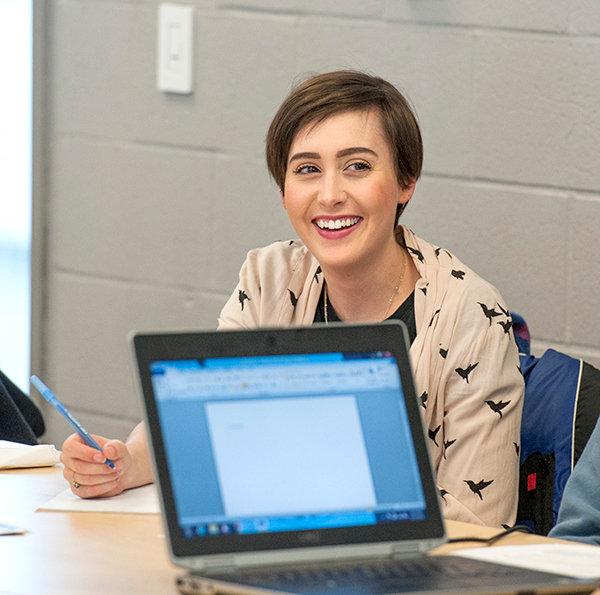
Note, you can enter the competency framework at any stage. You do not have to backtrack to earn badges. If you are a Transformative Changemaker or Transformative Researcher, you can apply for the badge at that growth stage.
The Innovative Georgian College Faculty Certificate
Innovative Georgian College faculty try new things (emerging), use best practices and iterate regularly (performing) and support the teaching and learning ecosystem of Georgian (transforming). They are engaged and, in turn, engage others in conversation and action related to excellent teaching and learning. They act as mentors to peers and connect to the strategic priorities of Georgian translating those to their classrooms. Students succeed and flourish in their classes and peers succeed and flourish in the college because of their commitment to Georgian’s teaching and learning community.
Faculty may apply for the final certificate (noted with the badge icon below) after demonstrating transforming competence in the faculty competencies. Faculty may continue to deepen and grow their practice by earning annual stamps to be added to their certificate.
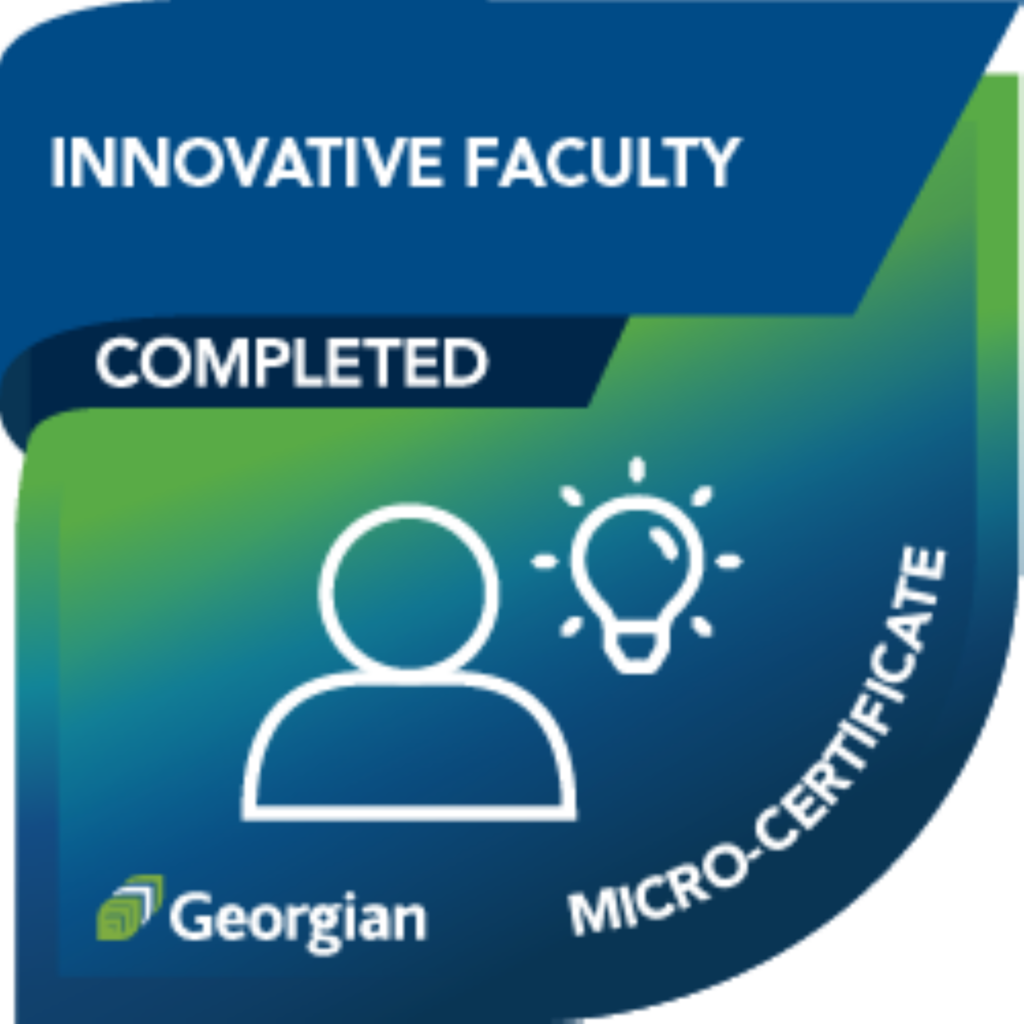
Innovative Georgian College faculty do the following:
- Prioritize trying new things as essential to growth in teaching practice.
- Intentionally use an iterative (continuously improving) approach to teaching that supports student success and contributes to student flourishing.
- Positively impacts the teaching and learning ecosystem and the success and flourishing of faculty peers.
We are so thrilled to celebrate the roles you weave in your faculty journey. Interested in applying for the micro certificate? Please reach out to Iain Robertson or Tracy Mitchell-Ashley.